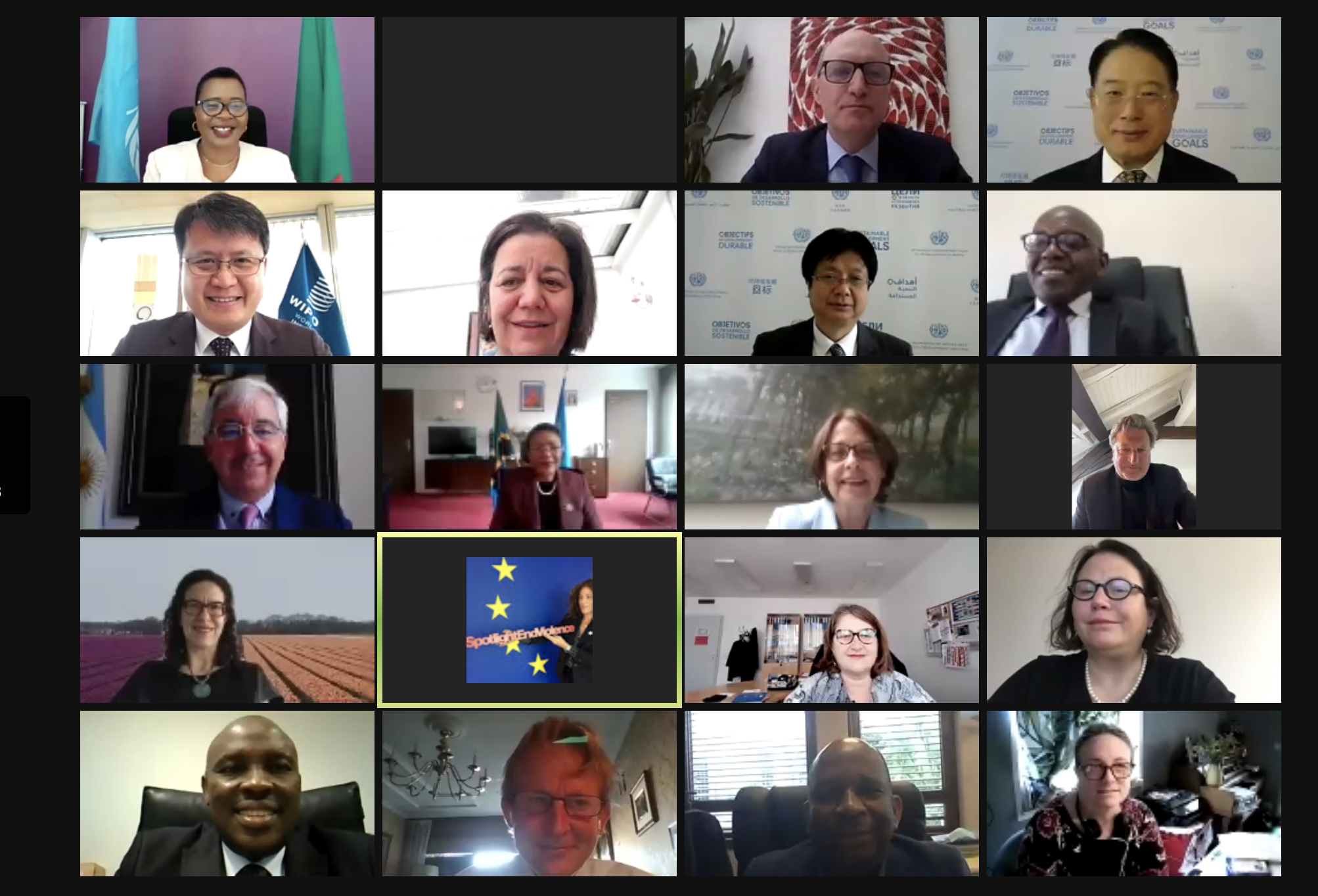COVID-19 and how to build resilient manufacturing capacity for essential medicines and vaccines in developing countries
19 May 2021

GENEVA, 19 May 2021 – Representatives of like-minded UN Member States have met virtually for the second meeting of the Group of Friends of Industry and Innovation in Geneva. on Under the theme, COVID-19 and the case for innovation and building resilient manufacturing capacity for essential medicines and vaccines in developing countries, participants discussed how to build resilient manufacturing capacity for essential medicines and vaccines in developing countries, and how to use technology transfer to promote innovation and enhance access to it.
Chair of the Group, Martha Lungu Mwitumwa, who is Ambassador and Permanent Representative of Zambia to the United Nations Office and other International Organizations in Geneva, said she wanted to explore “ow we as the Friends of Industry and Innovation can contribute to global agenda-setting by bringing health industry development to the forefront as we look to build more resilient societies”. She invited three high-level expert speakers representing different key constituencies within the global pharmaceutical industry to provide their perspectives on the current situation regarding access to medicines and to approaches that could be taken to deliver greater access, whilst nurturing innovation.
Emmanuel Mujuru, Chair of the Federation of African Pharmaceutical Manufacturers Associations (FAPMA), underlined the challenges faced on the African continent during the pandemic because of the lack of local pharmaceutical production and the prolonged dependence on imports of raw materials. The fragility of manufacturing supply chains worsened health and socio-economic inequalities and has thus slowed economic growth. In his opinion, the key issues that need to be addressed are: access to finance; access to markets; and technology transfer.
Suzette Kox, Secretary General of the International Generic and Biosimilar Medicines Association (IGBA), explained that in the view of IGBA, investments for local pharmaceutical production (LPP) should be targeted towards the production of essential medicines with the highest impact on public health. She cautioned that a radical and uncoordinated drive to fully localize medical manufacturing would have detrimental effects, driving cost increases and endangering access. International collaboration is therefore a prior.
Greg Perry, Assistant Director General of the International Federation of Pharmaceutical Manufacturers and Associations (IFPMA) highlighted the role of the private sector in the future development of African middle- and lower-income countries. He also stressed the importance of well-functioning intellectual property systems (to attract investment) and absorption ability for technology transfer. The latter is particularly important in terms of vaccine production, which requires highly specialized tech know-how.
UNIDO Director General, LI Yong, stressed the urgent need for countries and regions to improve access to medicines by strengthening capacity for local pharmaceutical production, affirming that “UNIDO stands ready to assist our member countries in developing the capability to manufacture high-quality healthcare products and regionalized value chains that will improve the resilience of the supply of medical products in the developing world.”
WIPO Director General, Daren Tang, noted that the world stands to benefit from a more diversified global distribution of research, innovation, and production. In this case, promoting local production would be one way to achieve this. However, he observed that for a local production to be economically viable and to respond to the expectations of increased access to health technologies, a number of challenges will have to be overcome. These include insufficient regulatory and IP frameworks as well as the lack of appropriate investment policies, which would facilitate joint ventures and international investment in local production.
In his closing remarks, UNIDO Deputy to the Director General, Hiroshi Kuniyoshi, affirmed that “the group, and its individual members, can play a conducive role by fostering greater cooperation and advocating the need for more resources”, reaffirming the need for the development of health industries to advance SDG9 and SDG3, and highlighting the importance of a stronger partnership between UN agencies, governments, and the private sector to build manufacturing capacities for essential medicines and vaccines.
For further information, contact:
Frank Van Rompaey, UNIDO Representative to the UN and International Organizations, Geneva